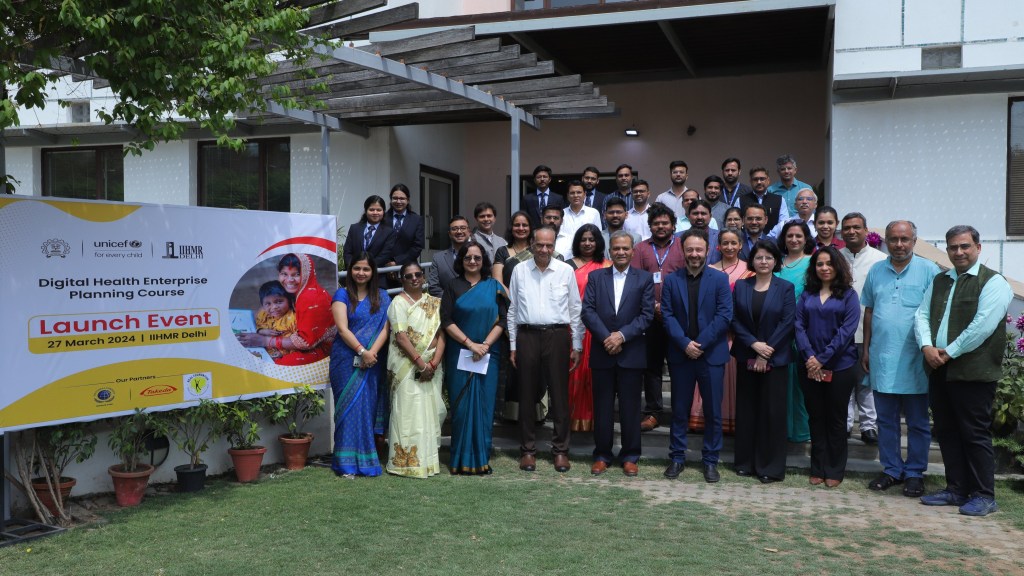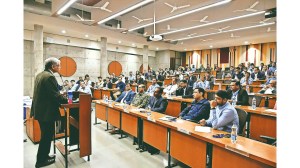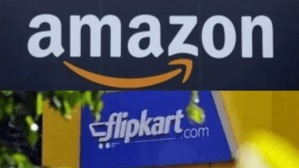UNICEF India along with the Indian Institute of Technology (IIT) Bombay and the International Institute of Health Management Research (IIHMR) Delhi, has launched a new digital health course aimed at bridging the technology knowledge gaps in the healthcare sector.
The comprehensive 10-week online course aims to address the growing demand for digital health education by disseminating knowledge and training among healthcare professionals.
“The digital health course launched by IIHM, IIT Mumbai, and UNICEF today builds on India’s commitment to promote digital innovation in the health system by equipping healthcare professionals with cutting edge skills and leveraging digital technologies,” UNICEF India Representative Cynthia Mc Caffrey said.
Starting from 17 April 2024, the ‘Digital Health Enterprise Planning’ is designed to equip healthcare professionals, policymakers, IT professionals, and others involved in healthcare technology with skills to support the sector’s digital transformation.
Understand the key facets of health program
The online health program includes nine modules and encompasses a plethora of topics crucial to digital health implementation. The course starts with understanding the link between digital technology and healthcare, expands through planning national digital health systems by combining digital interventions into health systems and executing digital health initiatives using an enterprise approach.
It is pertinent to note that participants will learn to develop digital health strategies, implement enterprise plans, establish digital health platforms, and execute interventions among other imperative healthcare related knowledge.
With a blended approach, the program includes online modules, hands-on workshops, virtual lectures, and interactive discussions, enabling participants with practical skills and knowledge.
Notably, the initiative aligns with UNICEF India’s commitment to the Global Initiative on Digital Health (GIDH), focusing on improving healthcare delivery through digital technologies in line with the Sustainable Development Goals (SDG).








